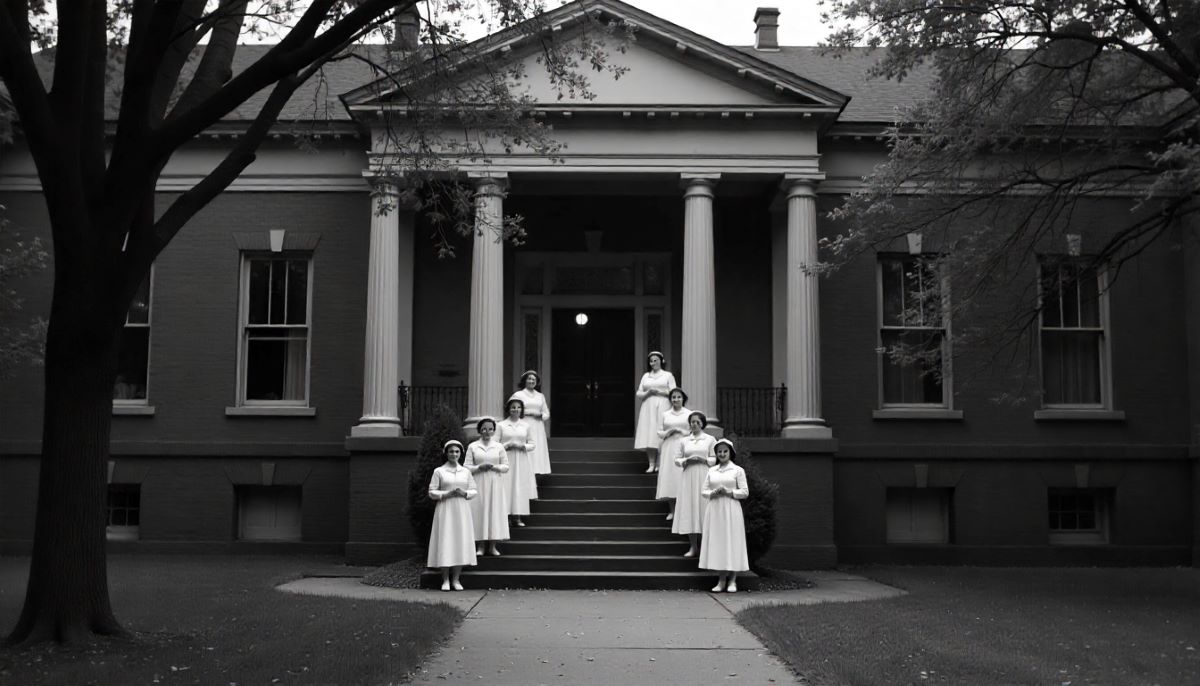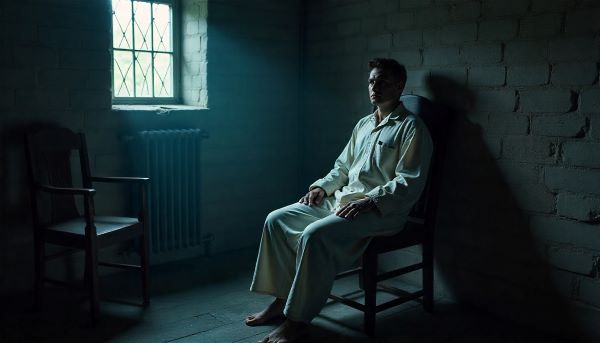Locked Away in Silence: Exploring the Overlooked Mental Health Crisis in Asylum Scandals

Mental health has always been a pressing human concern, yet the overlooked mental health crisis of the past is often hidden in the shadows of history. Stories of suffering, silence, and neglect behind the brick walls of asylums in the nineteenth and early twentieth centuries show how weaker people were not seen as individuals to be healed but rather as problems to be contained.
Asylum Scandals by Patricia Lubeck challenges our conceptions of compassion, faith, and human dignity by providing a challenging but essential window into this little-known period of Minnesota history.
In this article, we’ll explore how Christian books and faith-driven literature deepen encouragement and strength in light of such dark realities. We’ll examine lessons drawn from Asylum Scandals and connect them with the role of hope, faith through stories, and spiritual reflection. This exploration matters not only to readers interested in the overlooked mental health crisis but also to anyone seeking inspiration through Christian books that remind us of resilience, grace, and healing.

Lessons from Asylum Scandals: Looking at Hidden Realities
The hidden history of Minnesota’s two first state hospitals, St. Peter (founded in 1866) and Rochester (founded in 1879), is meticulously documented by Patricia Lubeck. These institutions were established with the noble goals of giving those society has classified as “mad” a safe haven and facilitating medical research. But because of overcrowding, a lack of funding, inexperienced employees, and dishonest management, those admirable objectives soon fell apart.
The result was tragic. Families could commit relatives with little or no evidence. Many were confined involuntarily and never released. The buildings that once looked like palaces became cages where patients suffered through straitjackets, hydrotherapy sprays, electroshock, lobotomies, and countless inhumane treatments.
Reading Asylum Scandals forces us to realize that the overlooked mental health crisis is not a modern invention. Its roots are deeply tied to neglect, lack of compassion, and systemic failures in society.
How Christian Books Provide Encouragement in Dark Contexts
One might not initially associate Christian literature with the gloomy stories of asylum scandals. However, the bridge becomes evident when we take into account the goal of Christian literature, which is to provide moral clarity, faith, and encouragement during difficult times.
For many years, readers who are experiencing fear, loss, or uncertainty have found hope in Christian literature. Scripture-based books serve as a reminder of light in times when history exposes trauma. Christian writers emphasize divine presence, forgiveness, and redemption in contrast to tales of hopelessness.
When we reflect on the tragedies described in Asylum Scandals, Christian books can serve as counterweights that teach us empathy, resilience, and the responsibility to see every person as a child of God. This is why literature matters: it shapes how we understand suffering and how we respond to it.
The Role of Faith Through Stories
Stories, not just doctrines, are frequently the most effective way to convey faith. Christian books, testimonies, and biblical parables all use stories to illustrate inspirational and uplifting truths. When people read accounts of others who endured hardship yet found peace and renewal, they experience encouragement in their own lives.
Asylum Scandals does not present itself as a Christian book, but it becomes a platform for faith through stories. The cruelty endured by patients can remind us of the spiritual call to treat others with compassion and justice. In contrast, Christian books highlight how kindness, prayer, and trust in God lead to strength in the darkest times. Together, both kinds of narratives shape a fuller understanding of human experience.
Understanding the History of Mental Health Institutions
A critical insight from Asylum Scandals is its contribution to the history of mental health institutions. These asylums were built with grandeur, surrounded by landscaped grounds, suggesting safety and healing. Yet, behind the beauty, they became sites of neglect, secrecy, and cruelty.
The historical record shows how society often turned away from uncomfortable truths—out of sight meant out of mind. This mirrors what still happens in modern times when we avoid conversations about mental illness, leading once again to the overlooked mental health crisis.
Christian books and faith-based literature challenge this silence. They encourage us to see the vulnerable, to stand with those who suffer, and to engage in honest reflection about justice and mercy.
How Christian Books Deepen Encouragement and Faith
By Reminding Us of God’s Presence
When people read stories rooted in Scripture, they are reminded that God never abandons His children. This message is powerful when contrasted with the isolation described in Asylum Scandals.
By Offering Practical Lessons on Resilience
Christian authors often share testimonies of how they endured trials. These lessons encourage readers to persevere through their own struggles, giving context to the overlooked mental health crisis of the past and present.
By Encouraging Compassion and Advocacy
Books that highlight Christ’s call to love our neighbor inspire readers to become advocates for those silenced or marginalized. This directly addresses the neglect uncovered in the history of mental health institutions.
By Connecting Personal Struggles with Eternal Hope
Even when faced with the darkest human failures, Christian books remind us that eternal hope in Christ outlasts any hardship. This reminder transforms despair into encouragement.
The Overlooked Mental Health Crisis: Then and Now
Lubeck’s book forces us to look backward, but the lessons are very much for today. Although we no longer confine people in sprawling asylums, the overlooked mental health crisis persists in different ways. Many communities still lack access to proper care. Stigma continues to prevent people from speaking openly about mental illness. Families still struggle in silence.
Christian books help bridge this gap by speaking to the heart. They remind us that suffering is part of the human condition, but faith offers strength, and community offers healing. By pairing historical awareness from Asylum Scandals with spiritual reflection, we can confront past mistakes and advocate for a more compassionate future.
Connecting Christian Encouragement with Historical Reflection
Consider how a reader might approach Asylum Scandals. They could feel sorrow, anger, or disbelief at the horrors patients endured. Yet, alongside Christian books that emphasize grace and hope, this sorrow can be transformed into motivation to do better. This combination of historical reflection and spiritual encouragement makes the lessons deeper and more personal.
It is one thing to study history. It is another to ask, “What does this mean for my faith?”
Christian books equip readers to take historical lessons and apply them to their spiritual journey. This dual approach strengthens personal faith while also raising awareness about the overlooked mental health crisis.
Learning Empathy Through Literature
Both secular and Christian books serve a shared goal: cultivating empathy. When we learn about patients who lived in silence within asylums, we are moved to care for those suffering from mental illness today. When we read Christian books that emphasize Christ’s compassion, we are reminded that empathy is not optional but essential.
In this way, literature becomes a classroom for the soul. It trains us to see suffering as an invitation to act with love. Reading Asylum Scandals alongside Christian works of encouragement highlights how faith is not abstract but practical.
Modern Perspectives on Mental Health and Faith
Modern science has advanced far beyond hydrotherapy sprays and lobotomies. Yet society still struggles to meet mental health needs effectively. According to resources like the Cleveland Clinic’s overview of nervous breakdowns, the demand for holistic care remains high.
Faith perspectives offer additional tools. Prayer, Scripture reading, and fellowship provide comfort that medicine alone cannot. Christian books bring these tools into everyday life, helping readers face challenges with courage. When paired with lessons from the history of mental health institutions, we see how much progress has been made—and how much further we must go.
How to Apply These Lessons in Daily Life
Read with Reflection
Pair historical works like Asylum Scandals with Christian books to gain both awareness and encouragement.
Practice Compassion
Remember that behind every statistic or historical fact is a real human life.
Engage in Advocacy
Speak up about modern issues of mental health and support efforts to address today’s overlooked mental health crisis.
Deepen Your Faith
Let Christian literature remind you of God’s promises and guide you to live with greater empathy.
Conclusion: A Call to Read and Reflect
The lessons from Asylum Scandals are sobering, but they are also necessary. By uncovering the silence of Minnesota’s early state hospitals, Patricia Lubeck forces us to confront the overlooked mental health crisis that shaped lives for generations. When paired with Christian books that highlight encouragement and faith, the impact is even more substantial. Together, they deepen our understanding of human suffering while pointing us toward hope, justice, and compassion.
If you are ready to uncover the truths of the past and reflect on how they connect with faith today, I encourage you to grab a copy of Asylum Scandals by Patricia Lubeck. Let its pages open your eyes to history while strengthening your resolve to live with empathy and faith.

Patricia Lubeck
I'm Patricia Lubeck, a true crime author specializing in Minnesota's historical narratives. I uncover dark secrets with meticulous research, crafting captivating tales of murder and mystery. I fuel my passion through exploring national parks and historic sites.Follow me on Facebook , Twitter, YouTube

0 Comments